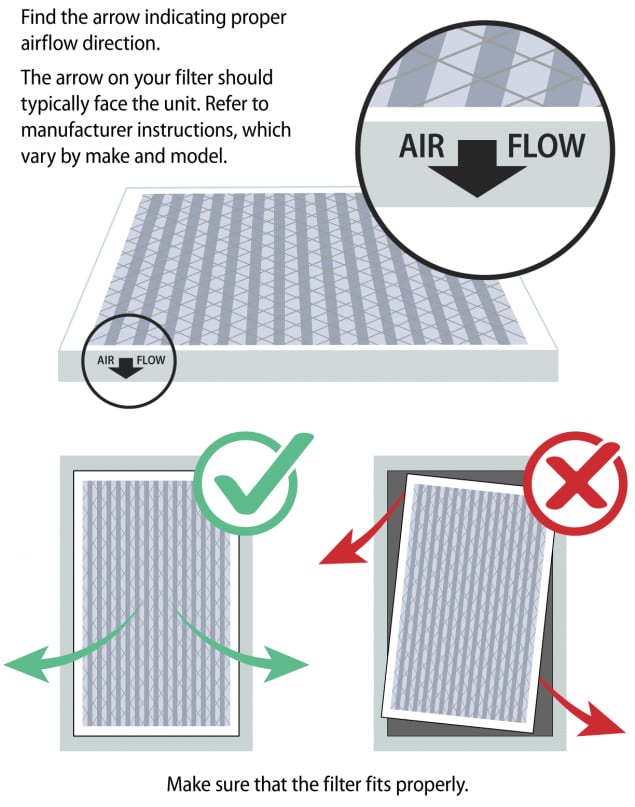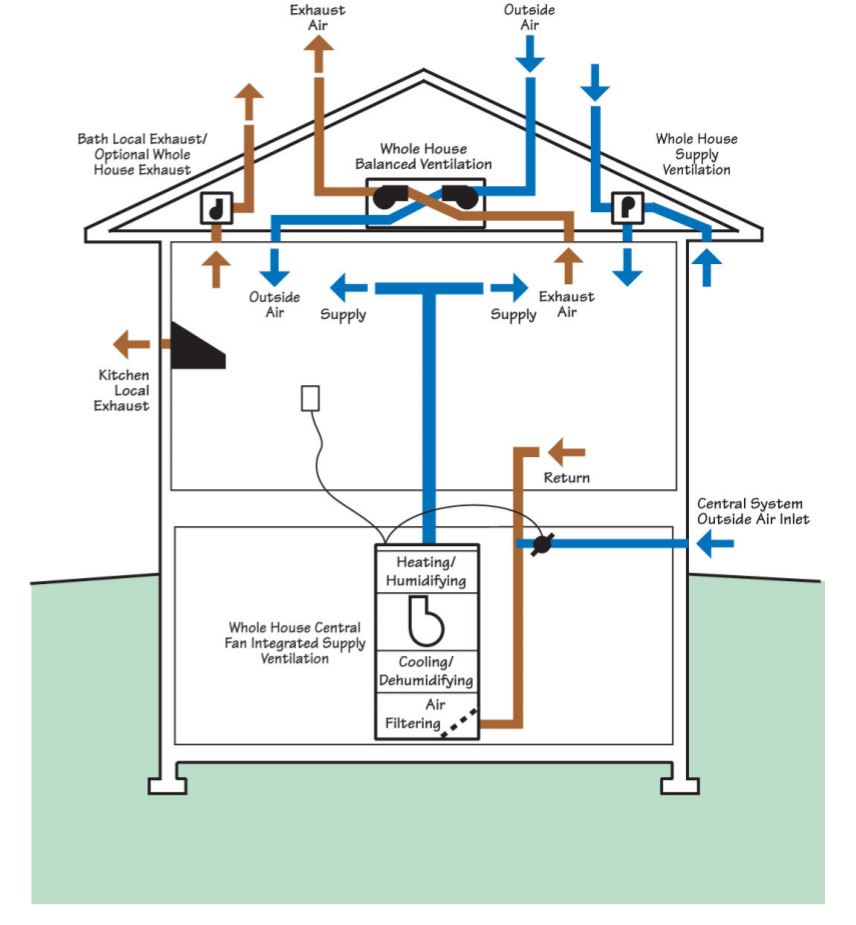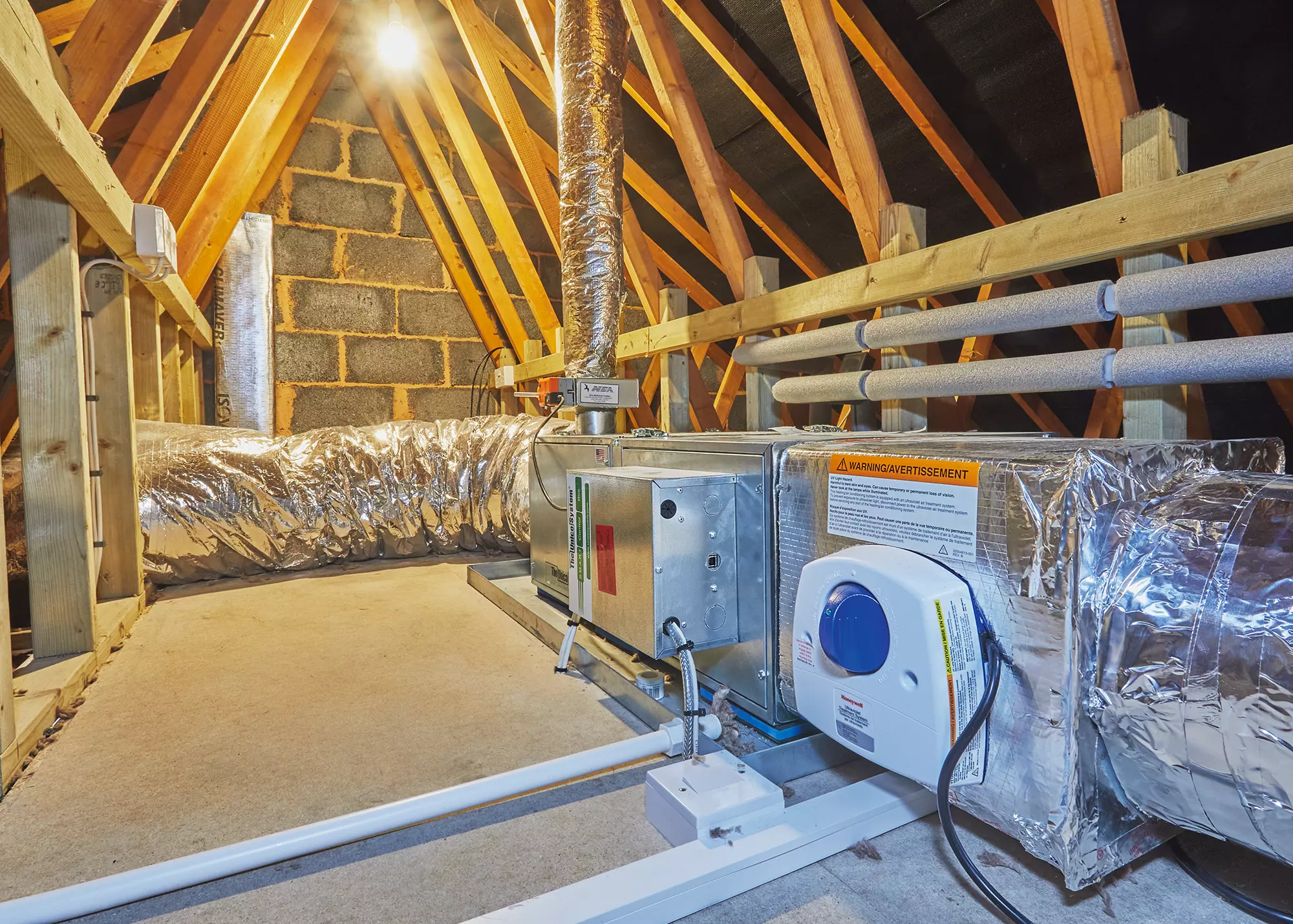Exactly How Effective Home Air Flow Can Boost Comfort and Energy Efficiency
Efficient home ventilation plays an important function in improving both convenience and energy effectiveness. It assures a consistent circulation of fresh air while eliminating stagnant, damp air. This procedure can result in a much healthier living setting and lower energy consumption. Many homeowners ignore the importance of appropriate air flow. Understanding the different ventilation systems and their advantages can expose significant understandings right into boosting indoor problems. What might be the best technique for enhancing these systems?
Understanding the Importance of Home Air Flow
Home air flow plays a crucial duty in preserving interior air quality and convenience. It includes the process of removing and supplying air from a space to guarantee that fresh air circulates while stale air is expelled. Proper air flow assists to reduce interior toxins, such as allergens, dirt, and volatile organic substances, which can build up over time. Additionally, it manages moisture levels, stopping the growth of mold and mold, which can adversely influence health and structural stability. Recognizing the importance of home ventilation also consists of identifying numerous systems, such as natural, mechanical, and crossbreed approaches, which can be employed to boost air exchange - Home Ventilation Melbourne. Ultimately, efficient air flow is crucial for producing a healthy and balanced living environment and safeguarding general well-being within the home

Advantages of Proper Airflow in Your Home
Appropriate airflow within a residence significantly enhances the overall living experience. Improved air blood circulation aids regulate interior temperatures, making rooms extra comfortable throughout the year. Furthermore, correct airflow reduces moisture levels, which can protect against mold and mildew growth and safeguard the structural stability of the home. Improved ventilation also adds to much better interior air high quality by weakening and getting rid of smells, contaminants, and allergens, promoting a healthier living atmosphere. In addition, reliable air flow can cause lower energy usage, as well-ventilated homes call for less heating & cooling, ultimately lowering energy expenses. Lastly, a well-ventilated home can raise property value, as possible customers value the advantages of a comfortable, energy-efficient space. For that reason, guaranteeing proper air flow is vital for both comfort and long-term sustainability.
Common Ventilation Systems and Their Features

Tips for Optimizing Your Home Air Flow
Several house owners may overlook the value of effective air exchange, enhancing air flow can substantially improve indoor air quality and comfort. Normal upkeep of air flow systems is necessary; cleaning filters and ducts avoids contaminants from circulating. Property owners must additionally take into consideration making use of exhaust followers in restrooms and cooking areas to eliminate excess dampness and smells. Furthermore, tactically placing vents can boost air flow throughout the home. Utilizing natural air flow, such as opening home windows throughout beneficial weather condition, can additionally improve air exchange. It is likewise beneficial to monitor indoor moisture levels, going for a balance between 30-50%. Integrating houseplants can normally filter air, adding to a healthier living atmosphere. These useful pointers can result in a more comfortable and welcoming home.
Exactly How Reliable Ventilation Can Lower Energy Costs
Optimizing power efficiency in a home typically rests on efficient air flow techniques. Correct ventilation systems aid manage interior temperature levels, reducing the requirement for extreme home heating or air conditioning. By helping with the exchange of stale interior air with fresh exterior air, these systems can keep a comfy environment, minimizing reliance on heating and cooling systems. This brings about decrease power intake and, consequently, minimized energy bills. Furthermore, reliable ventilation helps to eliminate dampness and contaminants that can jeopardize air quality, even more boosting general energy performance. Homeowners that buy high-grade air flow solutions frequently discover that the long-lasting cost savings in power costs substantially outweigh the initial financial investment, adding to both monetary and ecological advantages. Inevitably, efficient air flow is a crucial element in accomplishing lasting power use in domestic settings.
Regularly Asked Concerns
How Usually Should I Examine My Air Flow System?

The regularity of checking an air flow system ought to generally be every 3 to 6 months. Routine evaluations assist recognize problems early, ensuring suitable performance and preserving air high quality within the home for owners' health and wellness and convenience.
Can I Install Air Flow Equipments Without Professional Aid?
The inquiry of installing air flow systems without specialist help emerges frequently. While some people have the abilities to take on such tasks, most experts recommend consulting experts to assure security, effectiveness, and compliance with building ordinance.

What Signs Show Poor Home Ventilation?
Indicators of poor home ventilation consist of excessive humidity, condensation on home windows, musty smells, persistent dust buildup, and temperature changes. These signs recommend not enough air blood circulation, potentially causing discomfort and minimized indoor air quality.
Are There Eco-Friendly Air Flow Options Available?
Environment-friendly air flow choices exist, including power healing ventilators, all-natural ventilation systems, and passive design strategies. These solutions emphasize sustainability by reducing power usage while improving indoor air quality and preserving comfy living atmospheres for passengers.
How Does Weather Condition Affect Home Ventilation Efficiency?
Weather condition significantly affects home ventilation performance - Home Ventilation Melbourne. High moisture can hinder air movement, while severe temperature Home Ventilation Melbourne levels may require extra power for heating or air conditioning, impacting general system effectiveness and indoor comfort levels throughout different periods
Comprehending the relevance of home ventilation also includes recognizing various systems, such as natural, mechanical, and hybrid methods, which can be used to boost air exchange. Natural ventilation depends on vents, windows, and doors to allow fresh air to move in and stagnant air to exit, advertising easy air circulation. Supply air flow systems present fresh exterior air right into the structure, enhancing air top quality. Numerous house owners might overlook the value of efficient air exchange, maximizing ventilation can significantly improve indoor air high quality and convenience. Green air flow alternatives exist, consisting of power healing ventilators, natural air flow systems, and passive design methods.